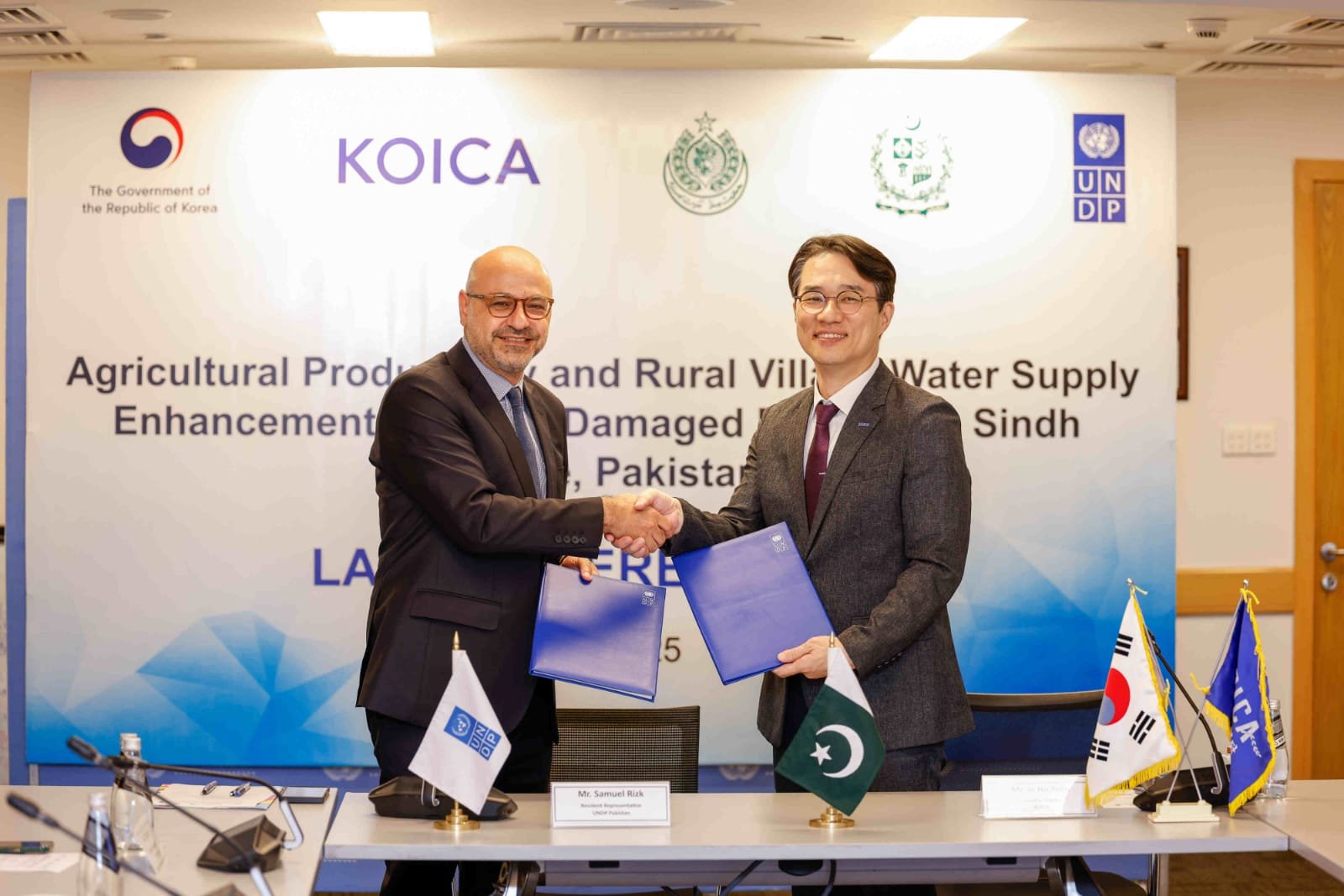Islamabad (TDI): The Korea International Cooperation Agency (KOICA) and the United Nations Development Program (UNDP), in partnership with the Government of Pakistan and the Government of Sindh, launched the project “Agricultural Productivity and Rural Village Water Supply Enhancement of Flood Damaged Regions in Sindh Province, Pakistan (2025-2029)” to boost agricultural productivity and water supply in flood-affected areas of Sindh.
With a generous contribution of US$8 million from KOICA, the project will benefit nearly 19,000 people, including small-scale farmers and vulnerable households.
The initiative seeks to rehabilitate flood-damaged farmland, strengthen agricultural productivity through improved irrigation infrastructure, establish solar-powered community water supply schemes to improve access to safe drinking water, and build the capacity of local farmers, government officials, and water user associations for sustainable agriculture and water management.
The launch ceremony, held at the UNDP country office in Islamabad on August 7, was attended by senior representatives from KOICA, UNDP, the Economic Affairs Division (EAD), and the Planning and Development (P&D) Department of Sindh.
The initiative marks the beginning of a five-year partnership aimed at improving the livelihoods of communities in District Dadu, one of the most severely affected by the 2022 floods.
Read More: UK HC Expresses Sorrow Over Lives Lost in Flash Floods in Pakistan
Speaking at the ceremony, Dr. Samuel Rizk, Resident Representative of UNDP Pakistan, said: “This project stands as a testament to our commitment to building forward better by strengthening the resilience of flood-affected communities, restoring agricultural livelihoods, and advancing economic empowerment.”
Je Ho Yeon, KOICA Pakistan Country Director, added: “KOICA appreciates the close cooperation of the Government of Sindh, the Economic Affairs Division, and UNDP Pakistan. This project was developed in response to the urgent need to restore water infrastructure and agricultural productivity in flood-affected areas of Sindh.”
The project aligns with Pakistan’s Resilient Recovery, Rehabilitation, and Reconstruction Framework (4RF) and contributes to the Sustainable Development Goals (SDGs), particularly SDG 2 (Zero Hunger) and SDG 6 (Clean Water and Sanitation).
It aims to deliver transformative change and serve as a model for integrated, climate-resilient recovery in post-disaster contexts.

Sohail Majeed
Sohail Majeed is a Special Correspondent at The Diplomatic Insight. He has twelve plus years of experience in journalism & reporting. He covers International Affairs, Diplomacy, UN, Sports, Climate Change, Economy, Technology, and Health.



